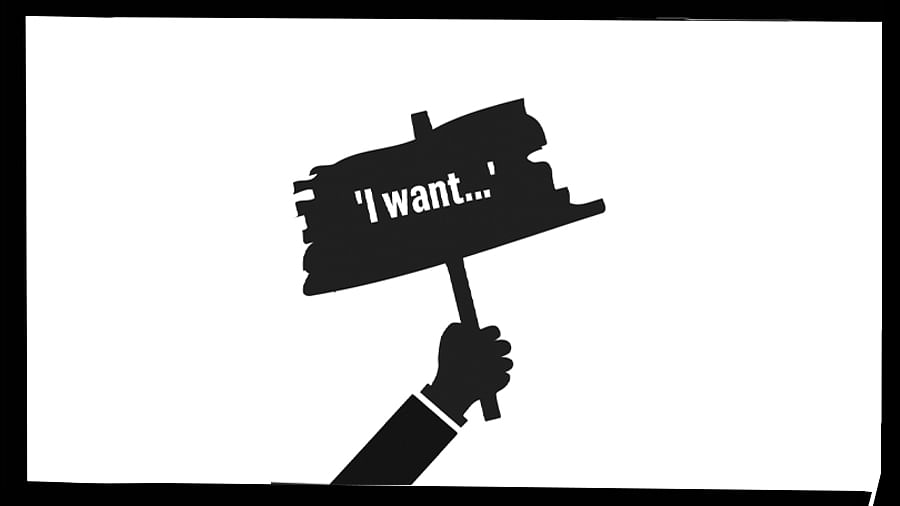
Credit: DH Illustration
When a citizen wants something done by a public office, they should approach their elected representatives and officials. And sometimes when many citizens want the same things, they can band together and approach the government. But there is an important difference between the two. It is clear that individual citizens speak only for themselves. But in groups, there is a tendency for people to behave as though they speak for others, too.
This difference matters. Officials are used to deflecting or even ignoring the expectations of individual citizens. One officer told me, “We get thousands of requests, and it is impossible to know which ones are frivolous, so I usually tell everyone to ‘come tomorrow’, to see if their issue is genuine and they’re serious about resolving it. But when a group of people present their ask together, it’s harder to tell them to ‘come tomorrow’.” Too many people are watching, and some of them might write about what happens on X or Instagram. And some of them ask the local MLA to intervene as well. The official has to assess all this.
There is a useful lesson in all this. Joining forces with others is a good thing. It magnifies what we seek, and makes it more likely that we’ll get it too. People in a lot of neighbourhoods have figured this out, and have formed ‘rising’ groups to speak collectively and publicly to those in charge. There’s a feeling among them that this works, and that encourages even more people to form such groups. In the beginning it might have only been Whitefield Rising, but surely now the civic sun is rising all over the city.
Bengaluru has even acquired a reputation for such interventions, and people from other parts of the country wish such a movement existed in their city, too.
Their actions are now an everyday phenomenon in different parts of the city, and thereafter quickly on social media. There’s a pattern to it. A group of people goes to the municipality or the state government and asks for some fix in their area -- a revision of a traffic junction, shifting a bus stop, closing or opening a park for
longer hours, and so on. It’s an endless stream of pleas, because the problems are numerous. And every once in a while, the State obliges them. That makes the group very happy about the outcome. They go on social media and sing praises and glory to all involved.
I am generally in favour of more people interacting with their representatives and officials. But all that glitters isn’t gold. Sometimes, people ask the government for things that serve them, and only them. In the process, some other group, which is not also in that conversation, can get stiffed by whatever decision is made. A common one is ‘shifting a bus stop’. Poor road design has resulted in traffic jams around stops, and people think -- wrongly -- that moving the bus stop is the solution. And once in a while, they succeed in convincing the local police to shift the stop.
There are all sorts of things wrong with that. The traffic police are not the planning authority, they’re not experts in transportation, they usually do these things unofficially, without recording them. The bus passengers are rarely consulted; one fine morning they just discover that their stop is gone! There are at least a half dozen good reasons why this is not the way to ‘solve’ anything. But despite that, those who take these requests to the government are thrilled when what they ask is done.
The officials like this, too. Without making a better plan, without clear separation of roles, with arbitrary power, many officials are able to decide things, and even be felicitated by citizens for doing that. It’s a total win-win for them; the accountability for many failures is washed away in a local tide of thankfulness from some residents. Other citizens’ interests may be harmed in the process, but who cares about that.
There has to be a better way. And at least in the written law, there is a better way -- through ward committees, a proper planning agency, public data, transparent finances, etc. But a swell of daily demands from those who are better organised is undermining this process. People are tired of waiting for the State to do the right things the right way, and happy to get what they can in whichever way.
A new nail in this mast is from ‘civil society’. In theory, this refers to public-spirited groups of citizens who champion a particular cause for the public good, often volunteering great amounts of their time. In practice, these days, this is being dominated by employees of well-funded non-profits who have signed memoranda of understanding with governments. These professionals have technical skills that are useful to officials, who are themselves untrained in a lot of things. With their support, the State can appear to be doing some good things.
Such partnerships between Sarkar and ‘civil society’ are now everywhere. Nearly every state government has fellowships that young people compete to get, and put with pride on their resumes. And every major NGO is busy filling its social media and annual reports with accounts of how it ‘collaborated’ with the State. But notwithstanding their contributions, such organisations are not ‘civil society’. More correctly, they should be seen as agents of the government.
Many of these partnerships end up substituting the processes that are enshrined in law. The government finds these useful to keep the spotlight away from its sins of omission and commission. Things like statutory planning, ward committees and social audits get sidelined because those who should be demanding properly elected and competent local governance are instead busy ‘assisting’ the unaccountable State.
(The writer is an entrepreneur, activist and public thinker)